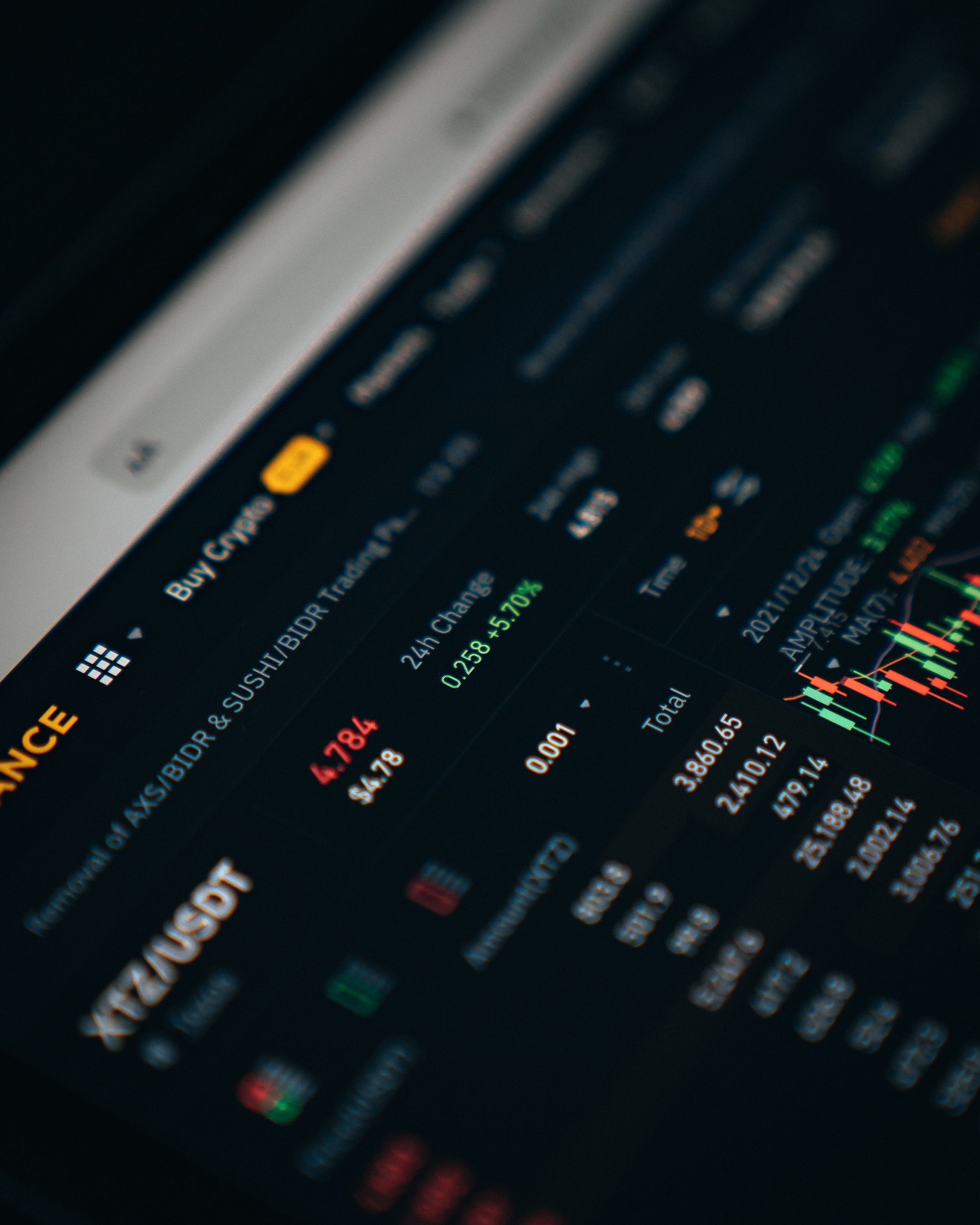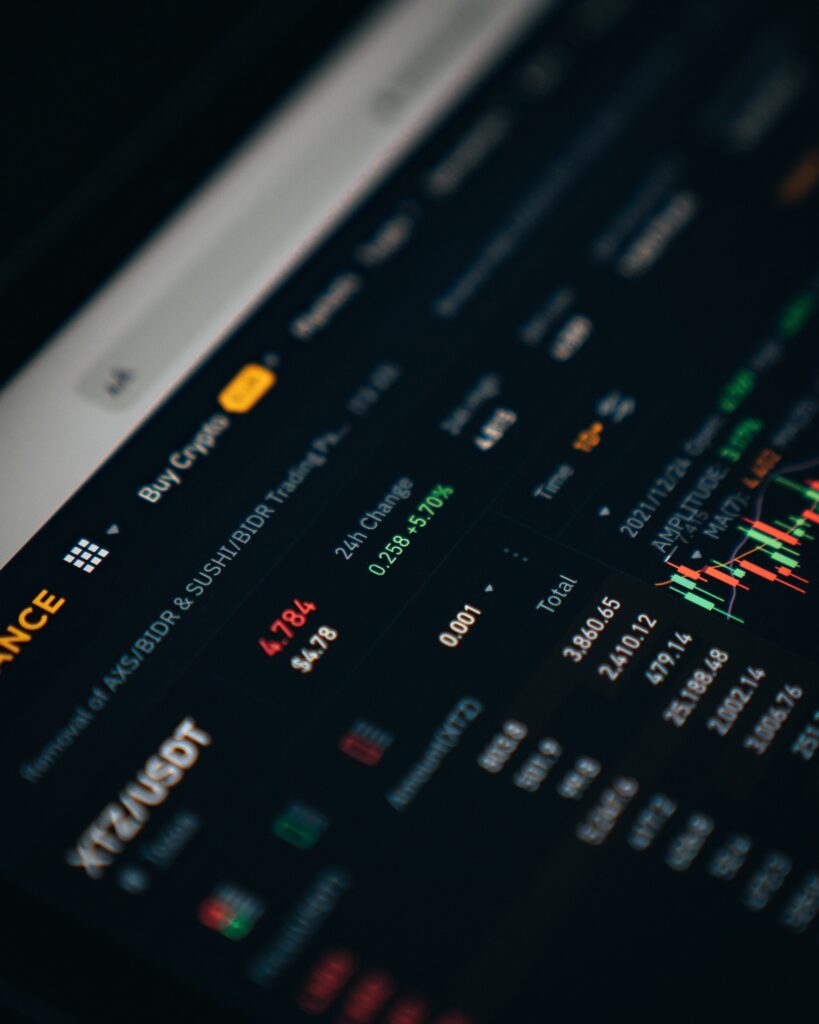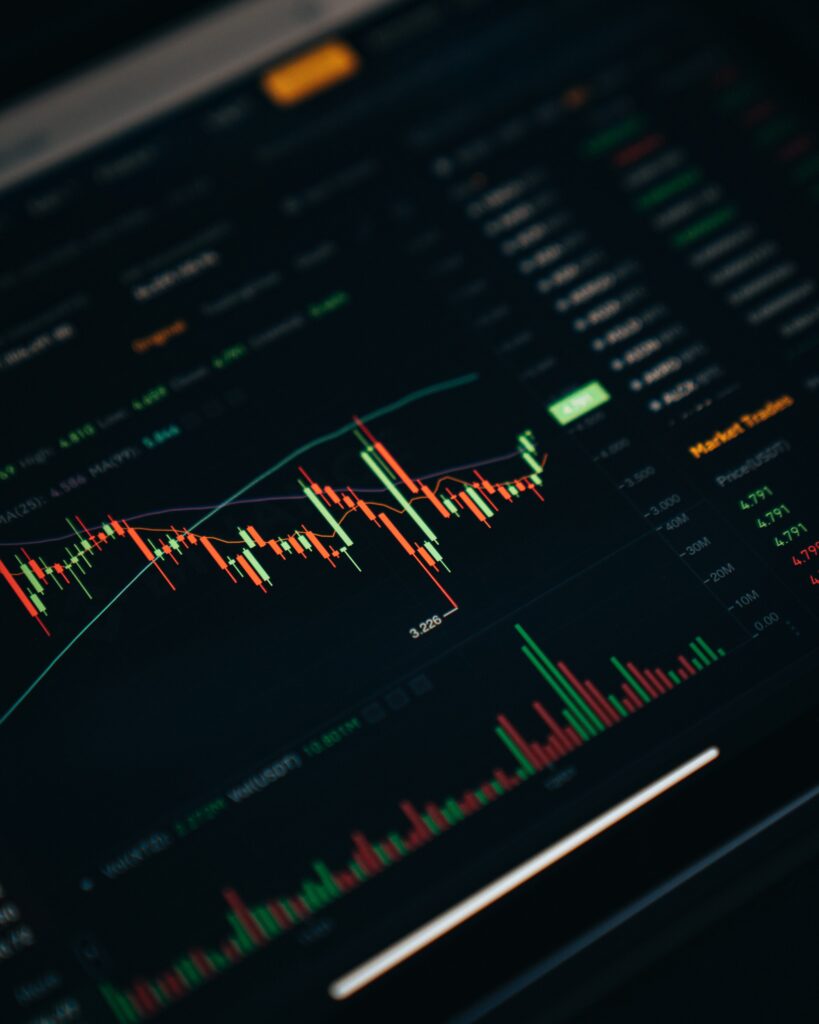
In today’s rapidly evolving financial landscape, the intersection of traditional retirement accounts and the exciting world of cryptocurrencies has created a captivating opportunity. With the advent of “How to Use IRA for Crypto Investments” by IRA Financial Crypto, investors can now navigate this complex terrain with confidence and ease. This comprehensive guide provides individuals with the knowledge and tools they need to leverage their Individual Retirement Account (IRA) for investing in cryptocurrencies, empowering them to take control of their financial future while utilizing the tax advantages and security offered by IRA accounts.
What is an IRA?
An Individual Retirement Account (IRA) is a type of investment account that provides individuals with a tax-advantaged way to save for retirement. There are several types of IRAs available, including Traditional IRAs, Roth IRAs, and Self-Directed IRAs. Each type of IRA offers different advantages and considerations when it comes to investing in cryptocurrencies.
Traditional IRA
A Traditional IRA is a retirement account that allows individuals to make tax-deductible contributions, and the investment grows tax-deferred until withdrawals are made during retirement. With a Traditional IRA, contributions are made with pre-tax dollars, and withdrawals in retirement are taxed as ordinary income. This type of IRA provides an immediate tax benefit, as contributions can be deducted from your taxable income for the year.
Roth IRA
A Roth IRA is a retirement account where contributions are made with after-tax dollars, meaning there is no immediate tax deduction. However, the investment grows tax-free, and qualified withdrawals in retirement are tax-free as well. One of the main advantages of a Roth IRA is that you can withdraw your contributions at any time without penalty, making it a more flexible option for those looking to invest in cryptocurrencies.
Self-Directed IRA
A Self-Directed IRA is a type of retirement account that allows you to have more control over your investments. With a Self-Directed IRA, you can invest in a wide range of assets, including cryptocurrencies. This type of IRA offers the opportunity to diversify your portfolio and potentially earn higher returns. However, it’s important to note that a Self-Directed IRA requires a custodian, and there may be additional fees and restrictions associated with this type of account.
Benefits of Using an IRA for Crypto Investments
Tax Advantages
One of the main benefits of using an IRA for crypto investments is the tax advantages it offers. Depending on the type of IRA you choose, you can benefit from either tax-deferred growth or tax-free withdrawals in retirement. This can help you maximize your investment returns and potentially reduce your tax liability.
Portfolio Diversification
Investing in cryptocurrencies through an IRA allows you to diversify your retirement portfolio. Cryptocurrencies are a relatively new asset class that can offer unique investment opportunities and potential high returns. By adding cryptocurrencies to your investment mix, you can reduce the risk associated with traditional investments and potentially increase your overall portfolio performance.
Retirement Savings
Using an IRA for crypto investments aligns with the primary purpose of these accounts – to save for retirement. Cryptocurrencies can be a long-term investment, and by investing in them through an IRA, you can take advantage of tax advantages while accumulating wealth for your retirement years.
Long-Term Investments
Cryptocurrencies, such as Bitcoin, Ethereum, Ripple, and Litecoin, have shown significant growth potential over the years. By investing in these assets through an IRA, you can take a long-term approach to your investments, potentially benefiting from the compounding effect and capturing the value appreciation of cryptocurrencies over time.

Types of Cryptocurrencies Eligible for IRA Investments
Bitcoin
Bitcoin is the first and most well-known cryptocurrency, gaining popularity for its decentralized nature and potential to disrupt traditional financial systems. Investing in Bitcoin through an IRA can provide exposure to this digital currency while taking advantage of the tax benefits offered by the IRA structure.
Ethereum
Ethereum is a blockchain-based platform that enables the creation and execution of smart contracts. It has gained significant attention in recent years and has a large community of developers and users. Investing in Ethereum through an IRA can allow you to participate in the growth of this platform and potentially benefit from the adoption of smart contract technology.
Ripple
Ripple is a digital payment protocol that aims to enable fast, low-cost international money transfers. It has partnered with various financial institutions and has gained attention for its potential to revolutionize cross-border transactions. Investing in Ripple through an IRA can provide exposure to this innovative technology while enjoying the tax advantages of an IRA.
Litecoin
Litecoin is a peer-to-peer cryptocurrency that was created as a “lite” version of Bitcoin. It offers faster transaction confirmation times and a different hashing algorithm. Investing in Litecoin through an IRA can diversify your cryptocurrency holdings and potentially provide exposure to different market trends and opportunities.
Setting Up an IRA for Crypto Investments
Choose a Self-Directed IRA Provider
When setting up an IRA for crypto investments, it is essential to choose a Self-Directed IRA provider that allows for investing in cryptocurrencies. Not all IRA custodians offer this option, so it’s important to research and select a provider that specializes in self-directed IRA investments. Look for providers that have experience and a good reputation in handling cryptocurrency investments.
Evaluate the Provider’s Fees and Services
Before opening an account with a Self-Directed IRA provider, carefully evaluate the fees and services they offer. Different providers have different fee structures, including setup fees, custodian fees, transaction fees, and annual account maintenance fees. Consider the total cost of the account and compare it to the potential benefits and returns you expect from your crypto investments.
Open an Account
Once you have selected a Self-Directed IRA provider, you can open an account by filling out the necessary paperwork and providing the required documentation. This typically includes personal information, identification documents, and any additional forms specific to the IRA provider. The process may also involve selecting the type of IRA you want to open and designating a beneficiary for the account.
Transfer Funds to Your IRA
After your account is set up, you will need to transfer funds from your existing retirement account or bank account to your IRA. This can be done through a direct transfer or a rollover, depending on your specific circumstances. It’s important to follow the guidelines provided by your IRA provider and consult with a financial professional if you have any questions or concerns.

Understanding the IRS Rules and Regulations
Prohibited Transactions
The IRS has rules in place to ensure that IRAs are used for retirement savings and not for personal gain or prohibited transactions. It is important to be aware of these rules to avoid any penalties or disqualification of your IRA. Prohibited transactions include self-dealing, investing in collectibles, and certain types of investments involving disqualified persons, such as family members.
Required Minimum Distributions (RMDs)
Once you reach the age of 72 (or 70 ½ if you were born before July 1, 1949), you are required to start taking withdrawals from your Traditional IRA. These withdrawals, called Required Minimum Distributions (RMDs), are subject to taxation and are calculated based on your age and the value of your IRA. Roth IRAs, on the other hand, do not have RMDs during the lifetime of the account owner.
Contribution Limits
IRA contribution limits are set by the IRS and may change from year to year. For 2021, the contribution limit for both Traditional and Roth IRAs is $6,000 for individuals under 50 years old, with an additional catch-up contribution of $1,000 for individuals 50 years old and above. It’s important to be aware of these limits and make contributions within the allowed limits to take full advantage of the tax benefits.
Early Withdrawal Penalties
Withdrawing funds from an IRA before the age of 59 ½ may result in early withdrawal penalties. Traditional IRA withdrawals before this age are subject to income tax plus a 10% penalty, while Roth IRA withdrawals of earnings may be subject to income tax and the 10% penalty. There are some exceptions to these penalties, such as using funds for certain qualified education expenses or first-time home purchases, but it’s essential to understand the rules to avoid unnecessary penalties.
Different Investment Options within an IRA
Direct Investments in Cryptocurrencies
One option for investing in cryptocurrencies within an IRA is to directly purchase and hold the digital assets. This involves opening an account with a cryptocurrency exchange that allows for self-directed IRA investments and using the funds from your IRA to buy and hold specific cryptocurrencies. Direct investments provide direct ownership of the cryptocurrencies and potential access to future value appreciation.
Indirect Investments via Cryptocurrency Funds
Another option is to invest in cryptocurrency funds or trusts within your IRA. These funds typically pool investors’ contributions and allocate them to a diversified portfolio of cryptocurrencies. Investing through a fund allows for exposure to multiple cryptocurrencies while potentially reducing the risk associated with investing in a single asset. It also provides professional management and eliminates the need for individual selection and research.
Investing in Cryptocurrency Mining Operations
Some self-directed IRA providers allow for investing in cryptocurrency mining operations. This involves investing in the infrastructure and equipment used to mine cryptocurrencies, such as Bitcoin. Mining involves solving complex mathematical problems to validate transactions and secure the network. Investing in mining operations within an IRA can provide exposure to the underlying technology and potential mining rewards.
Investing in Companies with Crypto Exposure
Investing in companies that have exposure to cryptocurrencies or blockchain technology is another option for IRA investors. This can include publicly traded companies that operate in the cryptocurrency or blockchain space, such as cryptocurrency exchanges, payment processors, or blockchain technology providers. Investing in these companies can provide exposure to cryptocurrencies indirectly while diversifying your investment holdings.

Factors to Consider when Investing in Crypto
Volatility of the Cryptocurrency Market
The cryptocurrency market is known for its volatility, with prices often experiencing significant fluctuations in short periods. When investing in cryptocurrencies within an IRA, it is crucial to consider the inherent risk associated with these assets. It’s important to be prepared for potential market downturns and to have a long-term perspective when investing in volatile assets like cryptocurrencies.
Market Research and Analysis
Before making any investment decisions, it’s important to conduct thorough market research and analysis. This includes studying the fundamentals of the cryptocurrencies you are considering, such as their technology, adoption rates, and potential use cases. Additionally, keeping up with market trends, news, and regulatory developments can help inform your investment decisions and mitigate potential risks.
Risk Management Strategies
Investing in cryptocurrencies involves risks, and it is essential to have a risk management strategy in place. This can include diversifying your investments across different cryptocurrencies and asset classes, setting realistic investment goals, and establishing appropriate stop-loss orders to limit potential losses. It’s also important to regularly reassess and adjust your risk management strategy based on market conditions and your individual risk tolerance.
Understanding Technical Analysis
Technical analysis is a method used to evaluate investment opportunities based on historical price patterns and market trends. It involves studying charts, indicators, and other technical tools to identify potential entry and exit points. Understanding technical analysis can help you make more informed investment decisions and potentially enhance your returns when investing in cryptocurrencies within an IRA.
Security Measures for Crypto Investments
Storing Cryptocurrencies Safely
When investing in cryptocurrencies, it is crucial to store them securely. This involves using secure digital wallets that provide features such as encryption, multi-factor authentication, and offline storage. Hardware wallets, such as Ledger or Trezor, offer an extra layer of security by keeping your cryptocurrencies offline and away from potential cyber threats.
Using Hardware Wallets
Hardware wallets are physical devices that store your cryptocurrencies offline, adding an extra layer of security. These wallets generate and store private keys offline, minimizing the risk of unauthorized access or hacking attempts. By using a hardware wallet, you can have peace of mind knowing that your cryptocurrencies are stored securely.
Implementing Multi-Factor Authentication
Multi-factor authentication (MFA) adds an extra layer of security by requiring additional verification steps beyond a password. This can include a unique code sent to your mobile device or a fingerprint scan. By implementing MFA, you can reduce the risk of unauthorized access to your cryptocurrency accounts or wallets.
Regularly Updating Security Measures
As the cryptocurrency landscape and cybersecurity threats evolve, it is important to regularly update your security measures. This includes keeping your wallets and software up to date with the latest security patches, using strong and unique passwords, and being cautious of phishing attempts or suspicious links. Regularly reviewing and updating your security practices can help protect your crypto investments from potential threats.
Keeping Track of Your Crypto Investments
Documenting Transactions
It is essential to keep detailed records of your cryptocurrency transactions within your IRA. This includes documenting the date of each transaction, the type and amount of cryptocurrency bought or sold, the value at the time of the transaction, and any fees or expenses associated with the transaction. This documentation will be necessary for reporting and calculating any potential gains or losses for tax purposes.
Tracking Capital Gains and Losses
When investing in cryptocurrencies, it’s important to track your capital gains and losses for tax purposes. This includes monitoring the value of your investments over time, keeping track of any sales or exchanges of cryptocurrencies, and calculating the corresponding gains or losses. Properly tracking your capital gains and losses will allow you to accurately report them on your tax returns and potentially minimize your tax liability.
Using Cryptocurrency Portfolio Management Tools
There are numerous cryptocurrency portfolio management tools available that can help you track the performance of your crypto investments. These tools can provide real-time market data, portfolio balance tracking, transaction history, and performance analytics. By using these tools, you can easily monitor the value of your crypto investments and make informed decisions based on accurate and up-to-date information.
Consulting with a Tax Professional
Given the complexity of cryptocurrency tax regulations and reporting requirements, it is advisable to consult with a tax professional when investing in cryptocurrencies within an IRA. A tax professional can provide guidance on how to properly report your crypto investments, navigate any applicable tax laws, and ensure compliance with IRS regulations. Their expertise can help you maximize the tax benefits of your IRA investments while minimizing any potential tax liabilities.
Seeking Professional Advice
Consulting with a Financial Advisor
When investing in cryptocurrencies within an IRA, it may be beneficial to consult with a financial advisor. A financial advisor can help you assess your risk tolerance, determine your investment goals, and create a diversified investment strategy that aligns with your overall financial plan. They can provide personalized advice based on your individual circumstances and help you make informed decisions when it comes to your crypto investments.
Engaging an Accountant or Tax Professional
Cryptocurrency tax regulations can be complex, and working with an accountant or tax professional who specializes in cryptocurrencies can be advantageous. They can help ensure that your crypto investments within your IRA are reported accurately and in compliance with IRS regulations. An accountant or tax professional can also provide guidance on various tax strategies that may optimize your IRA’s tax efficiency.
Attending Educational Workshops or Webinars
Educational workshops or webinars dedicated to cryptocurrency investments within IRAs can provide valuable information and insights. These educational events often cover topics such as understanding the basics of cryptocurrencies, navigating the IRS regulations, and strategic investment approaches. Attending such events can help you expand your knowledge and make more informed decisions when it comes to incorporating cryptocurrencies into your retirement savings strategy.
Joining Online Crypto Investment Communities
Joining online crypto investment communities or forums can provide a platform for exchanging ideas and experiences with other investors. These communities often offer valuable insights, tips, and news related to cryptocurrency investments within IRAs. By participating in these communities, you can learn from others’ experiences, stay up to date with the latest industry trends, and gain a broader perspective on the opportunities and challenges of investing in cryptocurrencies within an IRA.
In conclusion, using an IRA for crypto investments can provide several benefits, including tax advantages, portfolio diversification, and the opportunity for long-term growth. When setting up an IRA for crypto investments, it’s essential to choose a Self-Directed IRA provider, evaluate the provider’s fees and services, open an account, and transfer funds to your IRA. Understanding the IRS rules and regulations, different investment options within an IRA, and implementing proper security measures are also critical. Additionally, managing your crypto investments, tracking capital gains and losses, and seeking professional advice from financial advisors, accountants, and tax professionals can help you navigate the complexities of crypto investments within an IRA and optimize your investment strategy.
